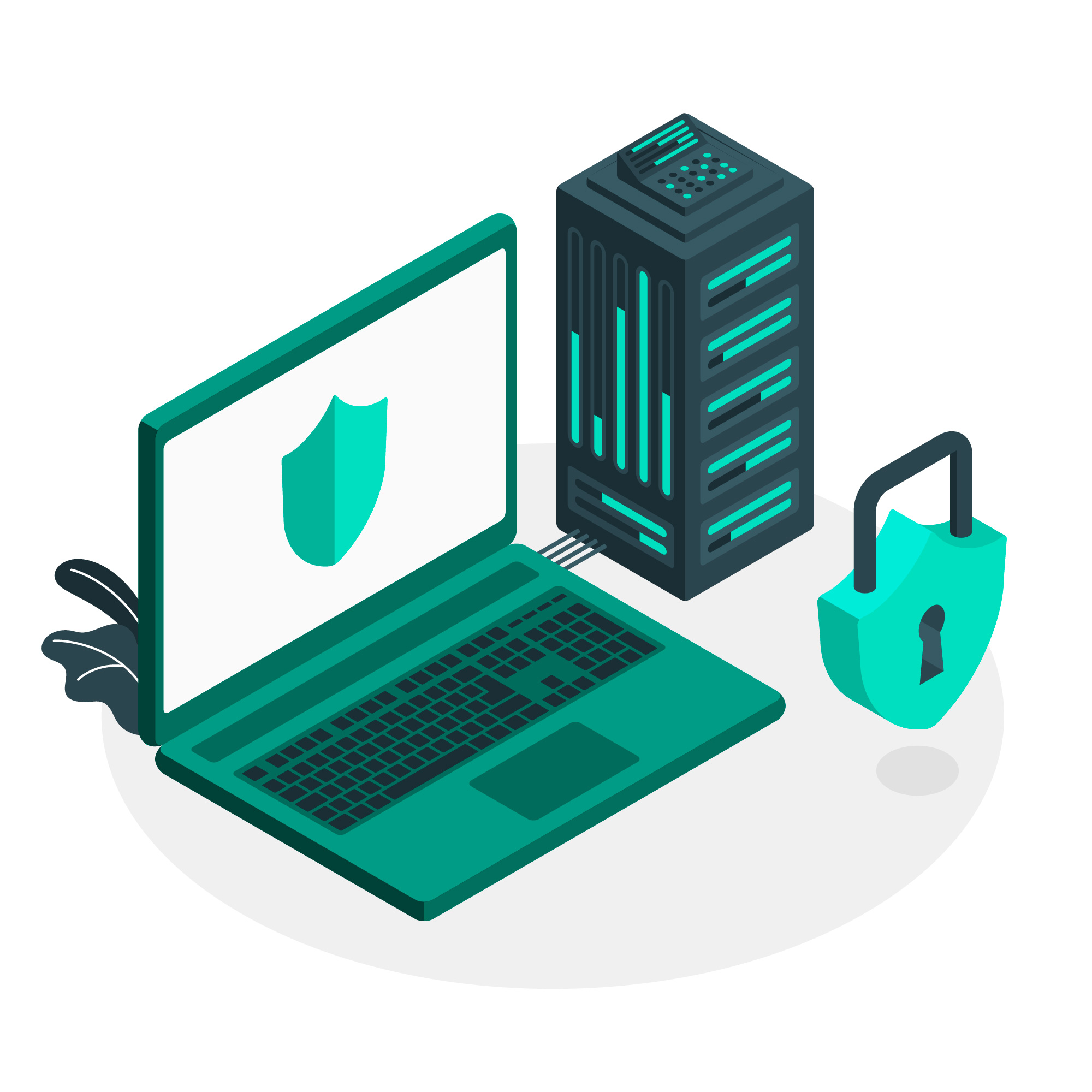In the not-so-distant past, cybersecurity was viewed as an IT issue, a line item on the budget reserved for large corporations and tech firms. Small and mid-sized businesses often regarded it as optional—something to worry about only after a breach.
But that era is over. Cybersecurity has become an essential pillar of modern business operations, regardless of industry or size.

The rise in cybercrime, driven by technological advancements and a growing digital economy, has created a world where every business is a potential target. And with the average cost of a data breach soaring into millions of dollars, no company can afford to be unprepared.
This article dives into the critical reasons why cybersecurity is no longer a luxury but a lifeline.
1. The Explosion of Cyber Threats
The threat landscape has drastically changed. Cybercriminals are smarter, faster, and better equipped than ever before. Gone are the days when attacks were primarily focused on big tech firms or financial institutions.
Today, even a small bakery with an online ordering system or a freelance consultant with a client database is vulnerable.
From ransomware and phishing to zero-day vulnerabilities and insider threats, attackers have a growing arsenal. The FBI’s Internet Crime Complaint Center (IC3) reported over 800,000 cybercrime complaints in a single year, with reported losses exceeding $10 billion. These figures barely scratch the surface, as many incidents go unreported due to reputational fears.
2. Small and Medium Businesses Are Prime Targets
Many small and medium-sized enterprises (SMEs) operate under the dangerous illusion that they’re too small to be attacked. In reality, they’re often seen as low-hanging fruit by cybercriminals due to their limited cybersecurity infrastructure.
A study by Verizon revealed that 43% of cyberattacks target small businesses.
Why? Because they typically lack the robust security systems, trained personnel, or recovery plans that large corporations have in place. One successful phishing email can give attackers access to confidential data, client information, or even bank accounts.
3. The Cost of a Breach Is Devastating
Cybersecurity isn’t just about prevention—it’s about survival. The average cost of a data breach in 2023 was estimated at $4.45 million globally, according to IBM.
This includes not just the immediate response and remediation, but also legal fees, regulatory fines, operational downtime, reputational damage, and lost business.

For smaller companies, such financial strain can be catastrophic. Many businesses never recover; nearly 60% of small businesses close their doors within six months of a significant cyberattack.
4. Data Privacy Regulations Are Getting Stricter
Around the world, governments are stepping up with tighter data protection laws. The European Union’s GDPR, California’s CCPA, Nigeria’s NDPR, and other frameworks mandate strict security measures for handling personal data. Non-compliance doesn’t just risk data loss—it risks fines, sanctions, and lawsuits.
ALSO READ: Why Data Privacy Is the Key to Brand Loyalty in 2025
For businesses operating in multiple regions or online marketplaces, staying compliant across jurisdictions is now a must. Cybersecurity is no longer just a technical requirement—it’s a legal one.
5. Customer Trust Is at Stake
In a highly competitive market, trust is currency. Customers expect businesses to safeguard their personal and financial information. A single breach can permanently damage your reputation and cause customers to take their business elsewhere.
Take the case of high-profile breaches like Equifax or Yahoo, where millions of user records were compromised. Even years later, these companies are still dealing with the fallout. For smaller firms, the consequences are even more severe because they lack the brand equity to bounce back quickly.
6. Remote Work Has Expanded the Attack Surface
The shift to remote and hybrid work models has introduced new security challenges. Employees now access sensitive company data from home networks, personal devices, and unsecured Wi-Fi connections.
Without the right controls in place, these endpoints become gateways for attackers.
VPNs, firewalls, endpoint protection, and secure file-sharing protocols are now essential. Businesses that fail to adjust their cybersecurity posture to accommodate remote operations risk leaving their systems wide open.
7. Supply Chain Attacks Are Rising
It’s not just your business that you need to worry about—it’s everyone you work with. Supply chain attacks have become a preferred tactic among cybercriminals. By compromising a trusted vendor or partner, attackers can infiltrate your systems without triggering suspicion.
The infamous SolarWinds attack, which compromised multiple U.S. government agencies and large corporations, was a stark reminder of how interconnected—and vulnerable—today’s digital supply chains are.
8. Cybersecurity Builds Competitive Advantage
While some companies treat cybersecurity as a burden, forward-thinking businesses view it as a differentiator.
Demonstrating strong cybersecurity practices can give you an edge in contracts, especially with enterprise clients or government agencies that require strict compliance standards.
Moreover, consumers are becoming increasingly savvy. Many now look for signs of secure websites, data protection commitments, and transparent privacy policies before engaging with a business. In this climate, cybersecurity is as much about marketing as it is about IT.
9. Insurance Providers Are Demanding It
Cyber insurance is becoming a standard business asset—but it comes with strings attached. Insurers now require businesses to meet specific cybersecurity standards before offering coverage or paying out claims.
If your business can’t demonstrate due diligence, your policy may be invalidated.
This creates a new incentive for companies to invest in cybersecurity, not only for protection but also as part of their risk management and financial planning.
10. Digital Transformation Demands It
Digital tools and technologies are deeply embedded in how we conduct business, from cloud computing and mobile apps to AI and IoT. As organizations embrace digital transformation, they must also account for new vulnerabilities.
Every piece of tech introduces a potential entry point for cyberattacks. Without proper security architectures and ongoing monitoring, your greatest assets could become your biggest liabilities.
11. Cybersecurity Talent Is an Asset
Cybersecurity is no longer the sole responsibility of the IT team—it’s a shared organizational priority. However, skilled cybersecurity professionals are in short supply globally, making them highly valuable assets.

Businesses that prioritize cybersecurity are more likely to attract and retain top tech talent. More importantly, they’re better equipped to build a culture of security, where every employee plays a role in defending the organization.
12. Incidents Are Inevitable—Preparedness Is Key
No system is 100% immune to attack. Even the most secure networks can be breached. That’s why modern cybersecurity emphasizes resilience as much as prevention.
Being prepared means having a solid incident response plan, regular data backups, employee training, and communication protocols in place. It’s about minimizing damage, recovering quickly, and learning from each incident to strengthen defenses.
13. AI and Automation Are Changing the Game
Just as businesses are using artificial intelligence (AI) and automation to improve operations, so are cybercriminals. AI-driven attacks can scan for vulnerabilities at scale, craft personalized phishing emails, or evade detection more effectively than ever before.
To stay ahead, businesses must leverage the same technologies—like AI-based threat detection, behavioral analytics, and automated patching—to outpace the attackers.
14. Public and Investor Scrutiny Is Growing
It’s not just customers who care about cybersecurity—investors and stakeholders do too. A significant data breach can impact share prices, investor confidence, and business valuation.
In some industries, cybersecurity due diligence is now part of merger and acquisition processes.
For publicly traded companies, failure to disclose or address cybersecurity risks can result in penalties and shareholder lawsuits. For startups, it can hinder fundraising and growth opportunities.
15. Cybersecurity Fosters Business Continuity
Every hour your business is down due to a cyberattack equals lost revenue. For e-commerce platforms, digital service providers, and financial institutions, even a few minutes of downtime can be damaging.
A proactive cybersecurity strategy ensures business continuity. From disaster recovery to failover systems, it’s about staying operational even in the face of adversity.
Cybersecurity Is the Cost of Doing Business
The digital economy is here to stay. And with it comes the need for robust, proactive cybersecurity.
Whether you’re a tech startup, a retail chain, or a small service provider, the threats are real, and the consequences are severe.
Cybersecurity is no longer optional, nor is it a one-time investment. It’s an ongoing commitment—a culture, a mindset, and a necessity in every boardroom discussion. Businesses that treat it as such will thrive in a connected world.
Those who don’t may not survive it.



2 Comments
Pingback: "Why Data Privacy Is the Key to Brand Loyalty in 2025" - Magic Media
Pingback: BYOD: The Hidden Cybersecurity Crisis Lurking in Your Employees’ Pockets - Magic Media